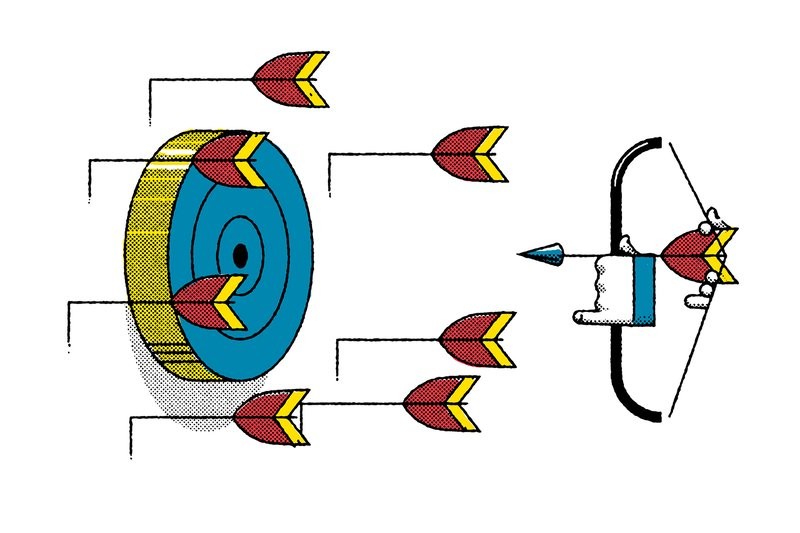都说90%的新创公司会倒闭,数据显示可不是这样

|
进入一个不熟悉的社会后,明智的做法是入乡随俗,了解那里的英雄、坏蛋和神灵都是谁。 这一原则同样适用于初创领域。对外来者而言,风投支持的初创公司的世界或许让他们觉得无法理解。但不要绝望,因为有关初创之路的免费指南在互联网上比比皆是。首先可以了解一下知名人物的姓名缩写,比如PG、TK、@AVC、a16z(它们分别指Y Combinator创始人保罗·格雷厄姆、优步CEO特拉维斯·卡兰尼克、合广风投基金合伙人弗莱德·威尔森以及风投公司安德森-霍罗维茨)。关注他们的博客,听听他们的播客,念叨一下他们的名言,再了解一下他们用过的缩略语(FNAC的意思是“功能而不是一家公司(feature, not a company)”,HENRY是指“还没有成为富人的高收入者(high earner, not rich yet)”)。在Startup Funding Bot、Startup Patterns、Startup Quotes等产品以及网站Great Fucking Startup Advice的帮助下,大家甚至可以通过移动信息推送来大量消化吸收以前的创业智慧(比如这条建议:“别去请求同意,去请求他X的原谅。”) 初创领域的知识整体上包含一些神话、一些建议、一些灵感以及零零碎碎的经过商学院认可的案例分析(大学都在增设创业课程,贝宝联合创始人彼得·泰尔却付钱给学生,让他们退学)。这个领域的流行用语已经被重复了太多太多,以至于现在它们都成了陈词滥调,并且因为过于简化而几乎变得毫无意义。 但这并不是说这些金句不对。那么,如果哪一条初创真理彻底错了,情况又会如何呢? 最近,我发现自己无意之中一直在重复一项数据,在私下谈话和公开演讲中,这个数字已经在我耳边响起过几十次了,那就是“初创公司十之有九都会倒闭”。问题在哪儿呢?问题在于这句话不对。总部位于波士顿的全球投资公司Cambridge Associates跟踪了27259家初创公司的风投1990-2010年的业绩。该公司的研究显示,从2001年起,风投支持的初创企业倒闭的比例其实一直都不超过60%——Cambridge Associates对倒闭的定义是为投资者提供的回报率为100%或更低。就连2000年互联网泡沫破裂时,这个数字最高也只有79%。 然而,业内人士一直都说初创公司倒闭的比例是90%,因为这样做可以让倒闭的初创公司创始人在烧完投资者资金、裁掉员工并关门歇业后可以得到宽慰。它让初创界可以为公司倒闭举行庆祝活动。人们会想,“当然,你失败了,但这是常态。你运气不好。” 但初创公司倒闭并非重力那样的自然法则,也不是什么馈赠。将其描述为正常情况只会掩盖真相,误导创业者,在某些情况下还会为糟糕的行为找到借口。 因此,我的看法是:要对初创界广泛接受的观点持怀疑态度。《创智赢家》(Shark Tank)等电视节目把创业捧成了偶像行为,旧经济公司不顾一切地模仿它们的颠覆者,《财富》500强高管纷纷跳槽到“独角兽”初创企业,在这样的环境下,拿出这种怀疑态度尤为必要。 要吸收硅谷泡沫中的名言金句,但这样做时要打个折扣。(财富中文网) 本文刊登在2017年7月1日出版的《财富》杂志上,题为《On Message, Off Target》。 译者:Charlie 审校:夏林 |
When entering an unfamiliar society, it is wise to learn the local customs, the unspoken rules, and the names of its heroes, villains, and gods. The same rule applies to Startup Land. To an outsider, the world of venture-backed startups might feel impenetrable. But don’t despair: The Internet is littered with free guides to The Startup Way. Look first to the luminaries known by their acronyms: PG, TK, @AVC, a16z. (That would be Y Combinator founder Paul Graham, Uber CEO Travis Kalanick, Union Square Ventures partner Fred Wilson, and venture capital firm Andreessen Horowitz.) Follow their blogs, listen to their podcasts, repeat their catchphrases, learn the Acronymed Ones’ acronyms. (FNAC stands for “feature, not a company.” HENRY means “high earner, not rich yet.”) You can even consume precious nuggets of startup wisdom through mobile push notifications thanks to products like Startup Funding Bot, Startup Patterns, Startup Quotes, and the website Great Fucking Startup Advice. (Sample counsel: “Don’t ask for permission, ask for fucking forgiveness.”) Startup Land’s collective knowledge is one part mythology, one part advice, one part inspiration, and zero parts business school–sanctioned case study. (As universities add courses on entrepreneurship, Peter Thiel pays students to drop out.) Its catchphrases have been repeated so much that they are now clichéd punch lines, oversimplified to the point of meaninglessness. But that doesn’t mean they’re not true. So what happens when a piece of startup gospel is flat-out wrong? I recently found myself carelessly repeating a statistic that I’d heard dozens of times in private conversations and on public stages: “Nine out of 10 startups fail.” The problem? It’s not true. Cambridge Associates, a global investment firm based in Boston, tracked the performance of venture investments in 27,259 startups between 1990 and 2010. Its research reveals that the real percentage of venture-backed startups that fail—as defined by companies that provide a 1X return or less to investors—has not risen above 60% since 2001. Even amid the dotcom bust of 2000, the failure rate topped out at 79%. Yet the denizens of Startup Land continue to cite the 90% figure because it serves a purpose. It comforts failed startup founders who burned through their investors’ money, laid off staff, and shut down their companies. It supports the startup world’s celebration of failure. “Sure, you failed, but that’s the norm,” the thinking goes. “The odds were against you.” But startup failure isn’t a natural law like gravity. It’s not a given. Normalizing the failure narrative only conceals the truth, misleads founders, and in certain cases, explains away bad behavior. So here’s some wisdom of my own: Take a skeptical view of the widely accepted knowledge in Startup Land. It’s especially necessary in an environment where entrepreneurship is fetishized on television shows like Shark Tank, old-economy corporations are desperately trying to imitate their disrupters, and Fortune 500 execs are jumping ship to “unicorn” startups. Soak up the mantras inside the Silicon Valley bubble. But do so with a grain of salt. A version of this article appears in the July 1, 2017 issue of Fortune with the headline “On Message, Off Target.” |













